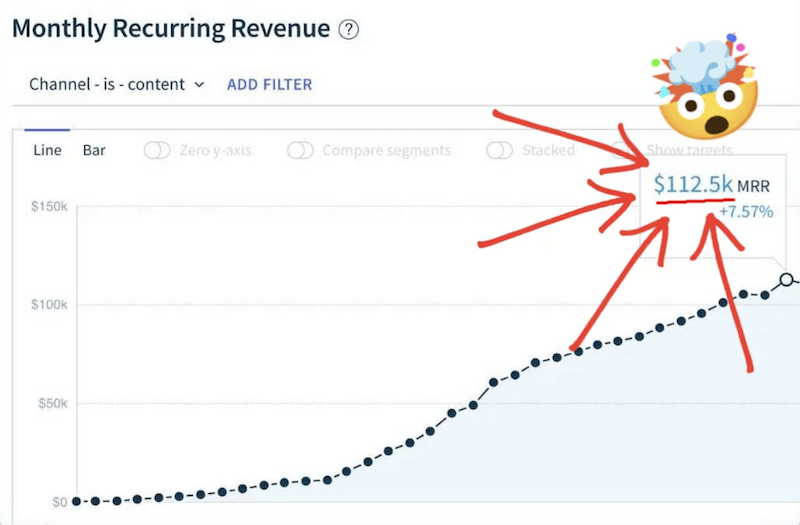What is algorithmic trading?
Algorithmic trading is trading done by computer programs, eliminating human interventions. This new form of trading opens new opportunities, but it also raises concerns about the future of financial markets.
Algorithmic trading fast facts
Algorithmic trading software can do everything human traders do, but much faster and more accurately.
Algo trading can be very complex, but AI trading bots give less experienced traders a chance to profit from the power of automated trading.
Algorithmic trading apps can apply strategies that are hard for humans to execute.
Algo trading has advantages and disadvantages and it’s good to take these into account before using it.
When choosing an algo trading app, you need to take several aspects into account.

Algorithmic trading software can perform all tasks human traders normally do, but faster and with greater precision. Photograph: TradeIdeas
How does algorithmic trading work?
Algorithmic trading does the same as human traders, but much faster and more accurately. Some algo trading apps allow users to fully automate the trading cycle and others can perform a part of the work.
First, algo trading apps collect and process real-time data, like prices, order book information, fundamental indicators, and so on. Then quantitative models analyze the data and search for opportunities.
Algo trading apps can also automatically execute orders when certain conditions are met, like stop-loss orders, limit orders, market orders… Or it can follow a strategy that is defined or chosen by a user.
Is algo trading for beginners?
Algorithmic trading can be very complex, but it also offers opportunities for anyone who starts their trading journey.
AI trading bots can give beginners a head start. It saves time, because beginning traders don’t need to learn all the skills, strategies, techniques, and whatnot, before they can actually trade.
These apps also feel like a game and that can stimulate beginners to dive deeper into advanced trading topics, or get better at algorithmic trading.
What are the benefits of algorithmic trading?
Algorithmic trading offers several advantages over traditional human trading:
- Algorithms can analyze huge amounts of data faster and more accurately than humans.
- Programs don’t have emotions, like greed and fear, but they follow instructions. That is an advantage over human trading because emotional actions can cause losses.
- Algorithms trade the same exact moment the decision is taken. Especially for day trading, time is essential.
- Algorithms don’t lose focus and they can monitor lots of shares simultaneously without getting tired.
- Trading requires experience. Algorithms are much faster at learning than humans and they keep improving their performance based on mistakes and successes.
- Automation in trading eliminates human mistakes and allows traders to focus more on strategies and portfolio management.

Algo trading apps can automatically execute trades. Photograph: TrendSpider
Is coding required for algo trading?
The answer depends on what you intend to do with algo trading. You can either learn how to develop an algo trading system, or use algo trading software to experiment with the possibilities of algorithmic trading.
If you are looking for a job in the financial industry or develop your own trading algorithms, you will certainly need coding skills. Python, R and C++ are the most popular programming languages for algo trading, but any experience with other languages can make your learning journey easier.
If you are not interested in coding, you can use AI trading bots or algo trading platforms. These offer solutions that don’t require coding. Traders can then, for example, choose predefined algorithms or customize strategies based on, for example, a set of technical indicators.

AI trading bots can automatically apply the preferred trading strategy of a user. Photograph: Stoic
What aspects do I need to consider when choosing an algo trading app?
When choosing an algo trading app, it is important to consider the following aspects:
- Choose an app that aligns with your technical skills. If, for example, you cannot code, you will be better served with apps that have drag-and-drop interfaces.
- Check if you can use the app in your region. Some require that you have, for example, a US phone number.
- Verify that the platform offers the assets you are interested in, like crypto currencies, stocks, bonds…
- Choose an app that fits within your budget. Some can look cheap at first sight, but they can charge high commissions for every transaction.
- Make sure the algorithmic trading app offers the functionalities you need, like backtesting, real-time data, technical analysis, paper trading, and more.
- Check if a community or helpdesk can support you when you have questions or experience troubles.
- Check if the app can connect with other apps, like your preferred broker, risk management tools, etc.

Always check if an algorithmic trading app has all the features you need. Photograph: BitsGap
What are some successful algo trading strategies?
Some successful algo trading strategies are:
- Arbitrage algorithms exploit price differences for the same asset on different exchanges. If, for example, a stock costs less on exchange A than on exchange B, the algo can buy the stock from A and sell it on B to make a profit.
- High-Frequency Trading (HFT) is trading large numbers at a high speed. Humans cannot detect small price movements or act fast enough, but algorithmic trading apps can make a profit from it.
- Trend-following strategies use indicators from technical analysis to identify trends and predict future price movements.
- Algorithms can apply mean reversion strategies. They can, for example, use technical indicators like Bollinger Bands or the Relative Strength Index to buy assets that are undervalued or sell them when they are overpriced.
Is it hard to learn algorithmic trading?
Learning algorithmic trading is a challenge and depends on several aspects.
- People with a background in programming, finance or quantitative analysis have a head start.
- Programmers with experience in Python or R have an advantage because these programming languages are mainly used for algo trading.
- The motivation to learn algorithmic trading is another aspect. Some people want to find a job in algo trading and others just do it for fun.
- There are many sources to learn algorithmic trading, but the best one is the one that matches one’s personal learning style.
What are the risks of AI trading?
Some risks associated with AI trading are:
- The performance of AI trading apps highly depends on the AI model and the financial data used to train it. If that is incomplete or inaccurate, the AI can make wrong trading decisions or send false trading alerts to users.
- It is risky to blindly rely on AI trading bots. They may not have been trained to properly respond to sudden changes in the market.
- AI trading systems can be vulnerable to hackers who could change the algorithm to manipulate the market or steal sensitive financial data.
- The technology has the potential to change the financial market. That could raise problems on a global scale.
Is algorithmic trading illegal?
No, algorithmic trading is not illegal in most countries, but it is subject to trading regulations and local legislations. It’s up to algo trading users and developers to comply with the regulations.
Algo trading apps must, for example, be transparent about how they generate trading signals and execute orders.
Some jurisdictions can restrict algorithmic trading, like limiting the amount of order submissions that can be done by algo traders. This is mainly to prevent the market from being disrupted by high-frequency trading (HFT).
What are the disadvantages of algorithmic trading?
The main disadvantages of algorithmic trading are:
- Developing algo trade systems requires a high expertise in programming and financial analysis. This could lead to a situation where a select group of traders has an unfair advantage.
- Algorithmic trading platforms don’t reveal their source codes and that could lead to concerns about manipulating prices of assets.
- Algorithmic trading is becoming increasingly popular and nobody can foresee whether this will have a positive or negative impact on the financial markets in the long run.

